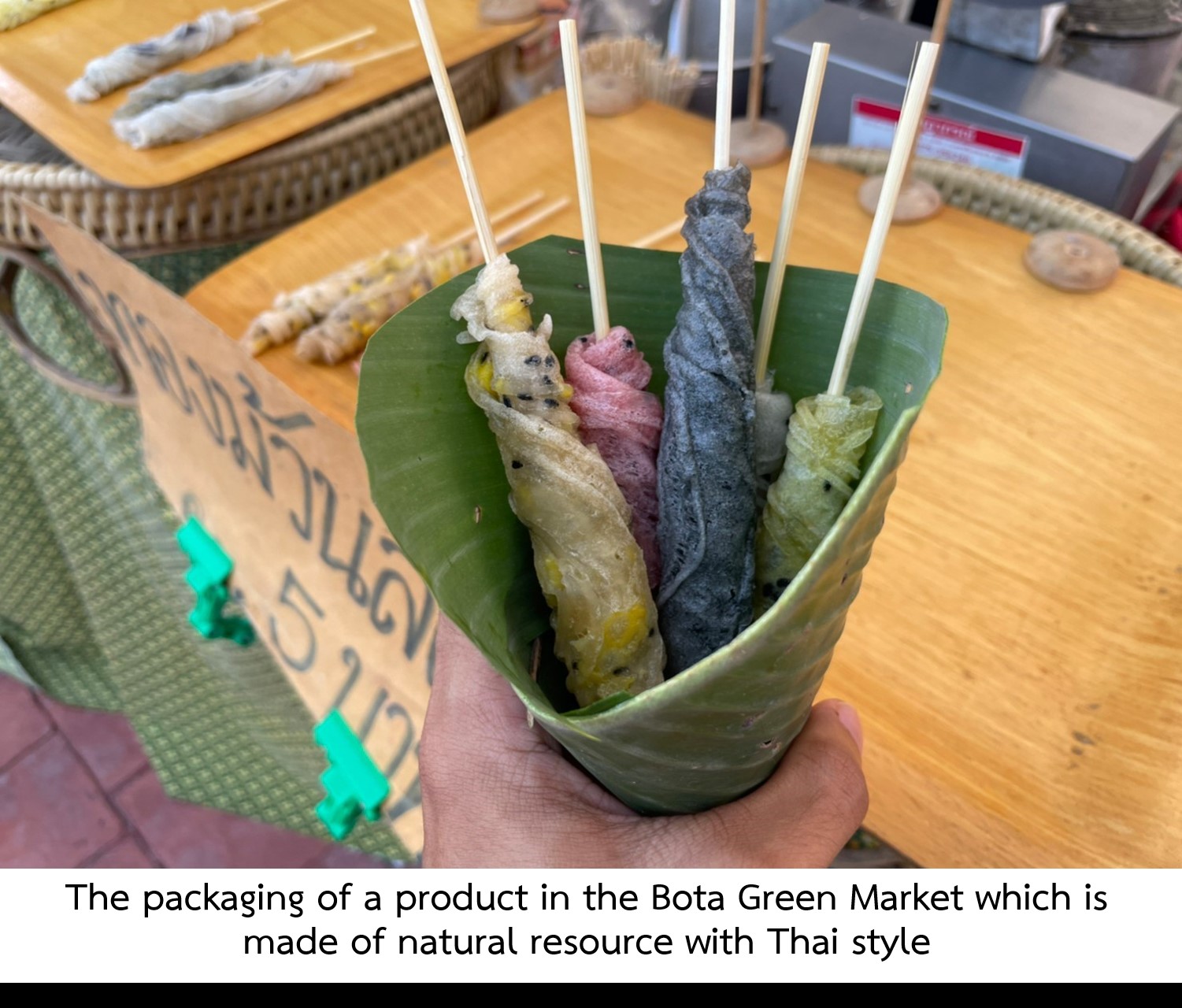The Extension of WU Policy to Outsource Suppliers and Supply Chain
Walailak University has policy, requirements, and measures to reduce the use of plastic, extending to outsource suppliers and supply chain, such as shipper, external individuals who provide food services within the university’s food center.” Additionally, this policy also extends to office equipment suppliers and those appointed by the university for the construction of buildings within the university. This policy was created in 2022 and has been reviewed in 2023 that is still active to the present.
In this regard, the university has established a policy requiring suppliers or those involved in delivering goods, equipment, tools, and various materials to consider environmental friendliness and reusability. It encourages and stipulates that online product sellers as consignors choose environmentally-friendly packaging for transportation or reuse to reduce packaging waste from the production process to be minimal, safe, and sustainable. The university places an emphasis on creating knowledge and understanding of food safety principles (as required by the Department of Health), food service management, quality control standards, and other regulations and best practices to provide food services in accordance with food safety principles. This ensures that consumers can trust that they will receive quality and safe food following food safety principles.
Given that food is now considered one of the vital nutritional resources and a significant energy source for humanity, the increasing population has an impact on the quantity and quality of food demand. In light of this, Walailak University recognizes the importance of food quality control for the benefit of consumers within the university. The university, therefore, has policies, regulations, and measures in place for sustainable food preparation and consumption. These policies extend to external service providers (outsource suppliers) to control the quality of services and food quality for consumers, including students and staff. In this regard, the policy outlines guidelines for entrepreneurs, requiring them to operate in an environmentally friendly and socially responsible manner, avoiding contamination during transportation, using safe ingredients, and following sanitary tools and procedures. Food operators must undergo an orientation and training program organized by the Center of Property Management.


In addition, the university focuses on establishing standards and quality control processes for food distribution, ensuring that consumers have confidence in the quality and safety of food according to dietary health principles. Training is provided to operators and external outsource suppliers in collaboration with the Department of Health once a year. This policy also extends to market stalls within the university’s premises. By placing importance on sustainable food production and consumption policies, a framework has been established to select ethical food sources, sustainable production, and consumption practices. There is concern throughout the supply chain for the environment and its future societal impacts.
Furthermore, for office equipment suppliers and those contracted by the university for building construction within the university, the university promotes the use of environmentally friendly materials, products, and equipment. This includes the reduction of disposable equipment that conserves the environment, saves energy, minimizes pollution, and is safe for health. Some products can also be reused, such as window sets, DES blind in glass; this is an innovation that combines a sunshade with insulating glass to form a single unit, with the sunshade positioned in the middle between the double-glazed safety glass layers. It reduces heat radiation by 38%–42%, blocks UV radiation by 55%–99%, and reduces noise levels by 38%–53%. Additionally, BIOWOOD, a wood used for railings, walls, and ceilings, is environmentally friendly. It has properties that reflect heat and reduce indoor heat. BIOWOOD products are made from natural materials, which can be reused, reduce pollution, and are environmentally friendly.

Goal 12: Responsible consumption and production


